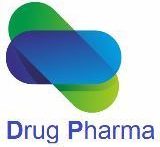
Zinc is an essential mineral for growth and a strong immune system. Eating a balanced, varied diet should provide us with the essential vitamins and minerals our bodies need, including zinc.
For some, like those following a vegan or vegetarian diet or those who are pregnant or breastfeeding, it might be necessary to take extra care to make sure they get enough zinc.
Why is zinc so important?
Zinc helps our bodies to:
- process carbohydrates, fats, and proteins in foods
- make new cells and enzymes
- heal wounds and repair tissue
- maintain a healthy immune system
How much zinc do I need?
The recommended daily intake of zinc is 9.5mg for men and 7mg for women.
You should be able to get your daily dose of zinc from zinc-rich foods, however, if your doctor or health practitioner advises you to take a zinc supplement, make sure you’re aware of the dosage and be careful not to take too much. Excess zinc can reduce the amount of copper the body can absorb, which can lead to anemia and weak bones.
Don’t take more than 25mg a day of zinc as a supplement unless you’ve been told to do so by your doctor.
Side effects when taking zinc can include feeling sick, an unpleasant taste in the mouth, vomiting, diarrhea, and tummy pain.
Which foods are high in zinc?
If you’re looking to get more zinc in your diet, you have plenty of zinc-rich foods to choose from, including:
- meat, particularly lamb and beef – 100g of lamb mince contains 4.6mg of zinc
- shellfish, including prawns, shrimp, mussels, scallops, squid, langoustines, and oysters – 100g of cooked prawns contains 1g of zinc
- vegetables like spinach, green beans, and kale – 100g of raw spinach contain 0.9mg of zinc
- dairy foods, including milk, yogurt, and cheese – 100g of Greek-style yogurt contains 0.5mg of zinc
- nuts, particularly cashews – 100g of plain cashews contains 5.9mg of zinc
- legumes, including chickpeas, lentils, split peas, and beans – 100g of brown and green lentils contains 1.4mg of zinc
What happens if I don’t get enough zinc?
Poor diet is most commonly linked to zinc deficiency, particularly in malnourished children and adults, or those who cannot eat a balanced diet due to an illness or lifestyle choice.
Other causes of zinc deficiency can include:
- gut problems such as coeliac disease and Crohn’s disease, which lead to low zinc absorption due to diarrhea
- ongoing kidney or liver disease
- drinking too much alcohol
- a rare condition called acrodermatitis enteropathica, where the protein that allows for zinc absorption is absent
The severity of zinc deficiency symptoms depends on how low your zinc levels are. Symptoms can include:
- loss of appetite
- weight loss
- diarrhea
- lack of energy
- becoming ill easily with colds, coughs, and chest infections
- hair loss
- skin rashes
- problems with eyesight, taste, or smell
- impotence
- children and adolescents may experience halted growth, delayed puberty, or learning difficulties
When to see a doctor?
If you think you’re experiencing symptoms of zinc deficiency, it’s worth seeing your health practitioner, who can advise on treatment such as zinc supplements. Advice from a doctor or pharmacist is important if you are taking medications that could interact with supplements.
Key points
- zinc is important for growth, healing, and immunity
- eating a balanced diet should give you all the zinc your body needs
- foods with good amounts of zinc include meat, shellfish, spinach, dairy, nuts, and legumes
- poor nutrition, health conditions, or pregnancy may make zinc deficiency more likely
- your doctor can let you know if you need a zinc supplement
Author: Helen Prentice
5 references
Vitamins and minerals [Internet]. bupa.co.uk. [cited 3 January 2021]. Available here
https://www.bupa.co.uk/health-information/nutrition-diet/vitamins-and-minerals
Vitamins and minerals [Internet]. NHS. 2020. nhs.co.uk. [cited 3 January 2021]. Available here
https://www.nhs.uk/conditions/vitamins-and-minerals/others/
The 10 best foods that are high in zinc [Internet]. Healthline. 2018. healthline.com. [cited 3 January 2021]. Available here
https://www.healthline.com/nutrition/best-foods-high-in-zinc
Fish and shellfish [Internet]. NHS. 2018. nhs.co.uk. [cited 3 January 2021]. Available here
https://www.nhs.uk/live-well/eat-well/fish-and-shellfish-nutrition/
Zinc deficiency, excess, and supplementation [Internet]. patient.info. 2017. [cited 3 January 2021]. Available here
https://patient.info/healthy-living/zinc-deficiency-excess-and-supplementation-leaflet
